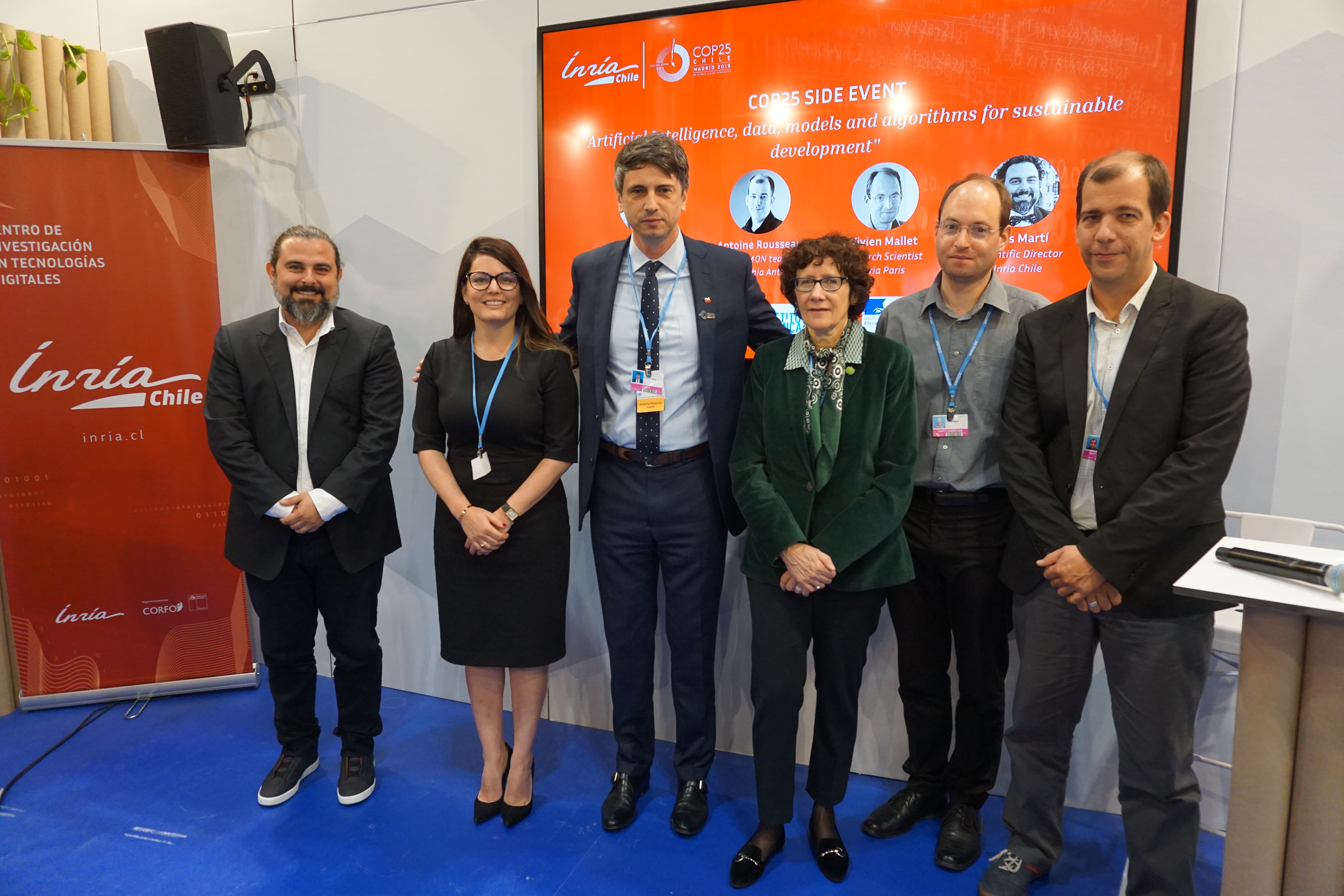
The meeting brought together Nayat Sánchez-Pi, PhD in artificial intelligence and director of Inria Chile; Antoine Rousseau, mathematician at the Inria Sophia Centre, who has developed tools and algorithms to combine various physical models, both for marine energy and for risk assessment in coastal areas; Vivien Mallet, a scientist at the Inria centre in Paris who combines observations with numerical simulations to model complex environmental systems that have applications in atmospheric pollution, urban noise propagation, road traffic, forest fires, renewable energies and weather forecasting; and Luis Martí, PhD in artificial intelligence and scientific director at Inria Chile.
The meeting was attended by Chile's Minister of Science and Technology, Andrés Couve, who praised Inria Chile's contribution to our country and highlighted the impact of artificial intelligence on the environment. Also present at the side event was the French Ambassador for Climate, Brigitte Collet, who emphasised France's selfless cooperation with Chile, particularly scientific cooperation through an institution such as Inria.
Verbatim
Artificial intelligence and data are essential components for understanding our environment, especially in cases where we need to predict the outcome of complex and dynamic systems such as those related to climate, oceans, biodiversity, etc. It is important because it accelerates mitigation, adaptation and integration strategies in areas such as renewable energy, industry, agriculture and disaster management, among others.
Director of Inria Chile
A mining tailings monitoring system that will provide online information on the status of these waste ponds to prevent leaks or spills, complex artificial intelligence models to minimise mining accidents, such as the project with Sernageomin, and complex hybrid wind and wave models for offshore wind energy, are some of the technological developments with which Inria Chile is contributing to sustainable development in our country and which were presented at this COP25 side event.
In addition, the invited scientists discussed Green AI or ‘green artificial intelligence,’ which raises the dilemma that computing can help us reduce our carbon footprint, but at the same time also pollutes in its development, because large computational resources are necessary to train these models. They commented that it is estimated that by 2030, between 30 and 50% of energy resources will be dedicated to computers. They therefore raised the need to optimise processes and use transfer learning methods, among others, to reduce the ecological impact of artificial intelligence.
